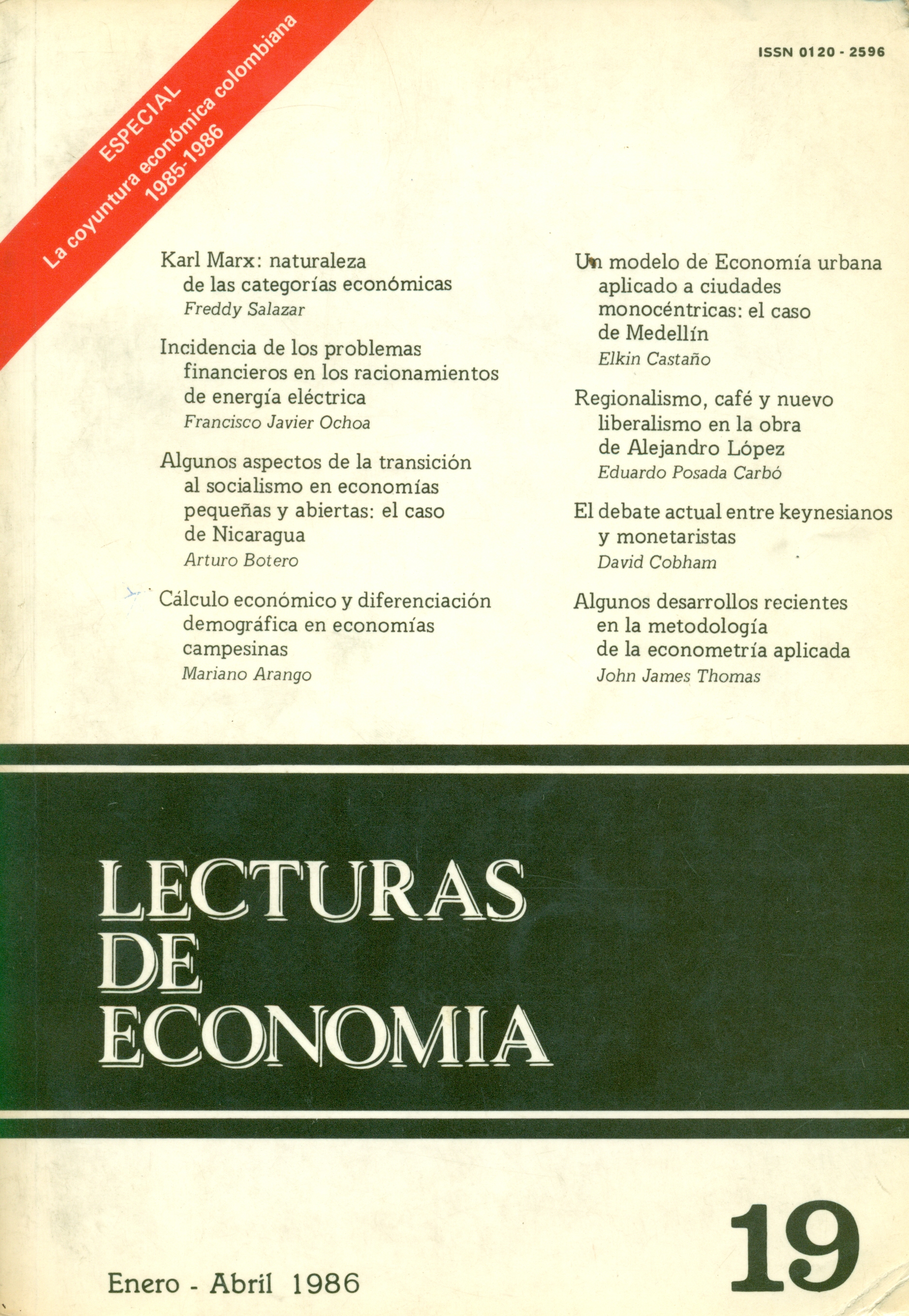Algunos aspectos de la transición al socialismo en economías pequeñas y abiertas: el caso de Nicaragua
DOI:
https://doi.org/10.17533/udea.le.n19a8074Abstract
• Resumen: Es fácil observar cómo en la teoría y en la práctica los países "socialistas" han estado casi totalmente aislados económicamente del resto del mundo. Un gran porcentaje de su comercio exterior se lleva a cabo entre ellos mismos (como es el caso del COMECON); esto se facilita cuando en determinada región existen varios de los mencionados países, pero resulta casi imposible cuando economías pequeñas que han estado bajo la influencia capitalista por mucho tiempo (en este caso Nicaragua) se "liberan". En otras palabras, la reorientación de la economía no puede ser inmediata y, por el contrario, consideramos en este artículo que no es necesaria, siempre y cuando se reorganice la estructura administrativa y el orden de prioridades económicas y sociales. El trabajo demuestra que aunque estos países continúan siendo "dependientes", ello no significa que la transición al socialismo peligra. Se propone, entonces, el principio de coexistencia, sacando así el mayor provecho económico posible a esta relación.
• Abstract: In theory and practice "socialist" countries have been almost completely isolated economically from the rest of the world. A large part of their foreign trade is conducted amongst themselves. While this causes few problems for countries adjacent to one another, it is far more difficult for small economies which have newly entered the socialist ranks as in the case of Nicaragua. This paper argues that such adjustments cannot be made quickly and probably need not happen at all. Maintenance of the existing trade structure need not put socialism at risk, and adoption the principle of co-existence is the preferred strategy.
Downloads
Downloads
Published
How to Cite
Issue
Section
License
This page, by Universidad de Antioquia, is licensed under a Creative Commons Attribution License.
Authors who publish with this journal agree to retain copyright and grant the journal right of first publication, with the article licensed under a Creative Commons Attribution-NonCommercial-ShareAlike License allowing others to share it as long as they acknowledge its authorship and original publication in this journal.
Authors can enter into separate, additional contractual arrangements for the non-exclusive distribution of the journal's published version of the work (e.g., post it to an institutional repository or publish it in a book), provided that these arrangements be not for profit and the journal be acknowledged as the original source of publication.
Authors are permitted and encouraged to post their papers online (e.g., in institutional repositories or on their websites), as it can lead to valuable exchanges as well as greater citation of the published work.







